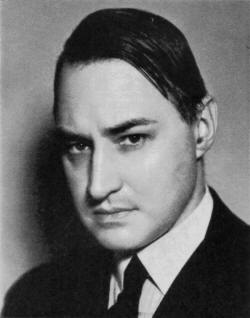

Queer Places:
Solna Cemetery
 Nils Jakob Eberhard Quensel (October 22, 1894 – November 18, 1971) was a Swedish lawyer and government minister. The so-called ‘Kejne
affair’ – after Karl-Erik Kejne, the cleric who had launched the first batch
of accusations – led to the resignation of the Minister for Ecclesiastical
Affairs, Nils Quensel, a bachelor with an interest in youth charities.
Nils Jakob Eberhard Quensel (October 22, 1894 – November 18, 1971) was a Swedish lawyer and government minister. The so-called ‘Kejne
affair’ – after Karl-Erik Kejne, the cleric who had launched the first batch
of accusations – led to the resignation of the Minister for Ecclesiastical
Affairs, Nils Quensel, a bachelor with an interest in youth charities.
He was the son of Justice Eberhard Quensel and Anna Jönsson and brother of Conrad Quensel, the lawyer. Nils Quensel graduated in 1912 and received a Bachelor of Arts degree at Uppsala University in 1915 and a law degree at the same university in 1920. He served law clerks from 1921 to 1923 and became acting clerk of the Svea Court of Appeal in 1924. In 1926, Quensel became an adjunct member of the Svea Court of Appeal and assessor in 1928. In 1930 he became a legislative expert at the Ministry of Finance and in 1931, director of legislative affairs at the Ministry of Finance. He became head of expedition in the department in 1933 and undersecretary of state in the Ministry of Communications from 1934 to 1936. In 1936, Quensel was appointed court of appeal of the Svea Court of Appeal and became, in the same year, through Ernst Wigfors's recommendation, a consultative government minister, a post he held from 1936 to 1940 and from 30 August 1943 to 31 October 1951, when he, among other things, dealt with church issues from 1945. According to some sources, Quensel was non-partisan, but he has also been associated with the Farmers' Union. [5] Quensel was president of the Administrative Court of Appeal from 1940 to 1961. Quensel resigned as Minister of The Church in 1951 in connection with the Kejne affair.
Quensel lived his whole life alone in his parents' apartment, which led to rumors that he was gay. There is no evidence of this, and he does not seem to have had any sexual relations at all. Kejne linked Quensel's long-standing private financial support to two supposedly gay men to gay prostitution. Kejne also claimed that Quensel's contacts with police superintendent Alvar Zetterquist and prison director Hardy Göransson were part of a plan to silence Kejne. According to the Kejne Commission, the accusations could not be substantiated, but the relatively mild criticism levelled by the Commission against Quensel's inexplicable police contacts and the way in which his private life was disclosed was sufficient to persuade him to resign as minister. [6][7] After his resignation, Quensel continued his ministry as president of the Administrative Court of Appeal in Stockholm until his retirement in 1961. From 1963 to 1968 he was active in the 1963 Bible Commission.
My published books: